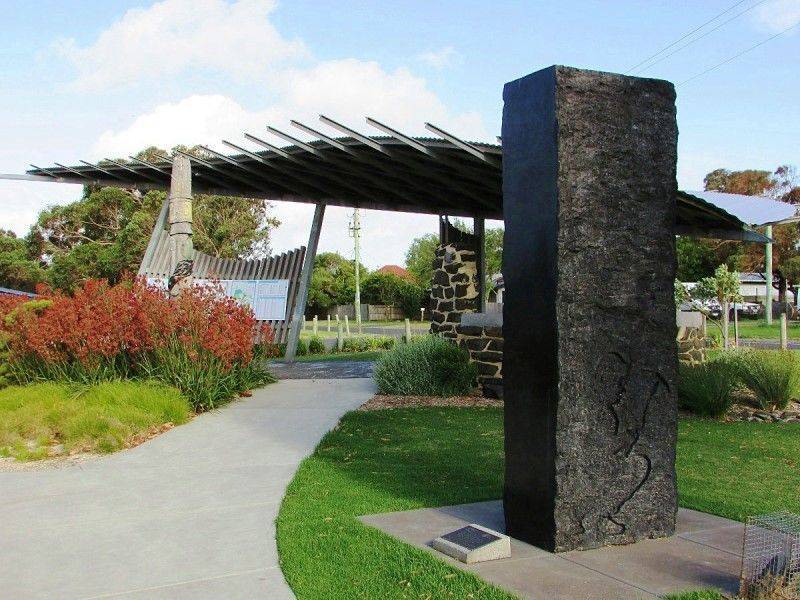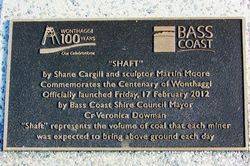
Home » Themes » Landscape » Settlement
Centenary of Wonthaggi ("Shaft")Print Page 
The sculpture "Shaft" commemorates the centenary of Wonthaggi. "Shaft" represents the volume of coal a miner was expected to bring above the ground every day.
Coal was discovered by explorer William Hovell at Cape Paterson in 1826, and was subsequently mined from the Powlett River fields in the region, between 1859 and 1864. However transporting the coal by whale boat through the surf to larger ships anchored offshore proved costly and dangerous and mining activity was soon curtailed. A tent city was established adjacent to the Powlett River, on what were then known as the Powlett River Coalfields.
After the 1909-1910 strike by coal miners in the Hunter Valley, the Victorian state government was determined to ensure stability in local supplies of coal. The State Coal Mine and the town of Wonthaggi came into being in 1910 to supply coal for the Victorian Railways.
A Post Office had opened on 11 November 1887 in a nearby area. On 1 August 1910 this office was renamed St Clair and on the same day Powlett Coal Mine Post Office, opened earlier that year, was renamed Wonthaggi. That is when the town was given a permanent name.
Location
| Address: | 1 Bent Street, Wonthaggi Visitor Information Centre, Wonthaggi, 3995 |
|---|---|
| State: | VIC |
| Area: | AUS |
| GPS Coordinates: | Lat: -38.603825 Long: 145.593512 Note: GPS Coordinates are approximate. |
Details
| Monument Type: | Sculpture |
|---|---|
| Monument Theme: | Landscape |
| Sub-Theme: | Settlement |
| Approx. Event Start Date: | 1910 |
| Approx. Event End Date: | 2010 |
| Artist: | Shane Cargill & Martin Moore |
Dedication
WONTHAGGI BASS
100 YEARS COAST
Our Celebrations
"SHAFT" by Shane Cargill and sculptor Martin Moore commemorates the Centenary of Wonthaggi
Officially launched Friday, 17 February 2012 by Bass Coast Shire Council Mayor Cr Veronica Dowman
"Shaft" represents the volume of coal that each miner was expected to bring above ground each day






